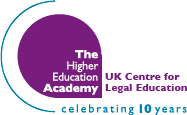Chair's report: Sonia Kalsi
 Parallel Session 1 (Chancellor’s 1)
Parallel Session 1 (Chancellor’s 1)
Chair: Sonia Kalsi (The College of Law)
LawWorks Pro Bono Law School Survey 2011
Richard Grimes and Martin Curtis presented the results of the LawWorks Pro Bono Law School Survey 2011 on pro bono activity at law schools, in which 111 institutions were invited to complete questionnaires. The results suggest that the number of law schools doing pro bono has been increasing incrementally since the first LawWorks survey in 2000 with a significant number of students now engaging in pro bono activity.
After a comprehensive presentation on the detail of the survey results, a number of interesting issues were raised for discussion. It was suggested that the increase in students engaging in pro bono activity may be due to the outsourcing of pro bono placements rather than an increase in resources or law school staff being given more time for their involvement in such activities. The specific challenge of pro bono organisations preferring LPC students rather than undergraduates was also considered, with audience members suggesting that law schools foster better links with local law firms and also perhaps target specific schemes, training both law school students and pro bono organisations so they are better able to give each other what they need. Despite the logistical challenges it might raise, there was discussion on whether law schools should in fact be offering more pro bono activity and clinical provision opportunities to students in the light of cuts to legal aid. The potential for students to contribute is considerable, and it was argued that student engagement in pro bono activity is an essential part of legal education since it allows students to apply what they know.
Enhancing and promoting student skills: Pro Bono and CV development
Lydia Bleasdale-Hill and Paul Wragg presented the results of their two surveys carried out within the School of Law at the University of Leeds which addressed student ability to identify skills they have developed through pro bono activity as well as the extent to which they are able to sell these skills to prospective employers.
The results of the first survey suggest that students struggle to identify the skills they have gained from pro bono experience. This may be due to students simply forgetting the skills they have used or being unable to recognise them in the first place. In the second survey students had been given training which outlined the skills they might be expected to develop on a pro bono project and were continuously encouraged to reflect upon the skills used. Interestingly, despite such guidance, students still underestimated the range of skills they had gained from a pro bono experience. It was argued that this problem could be addressed by combining project-specific training on the recognition and development of such skills with more general support systems.
The second part of the paper set out the creation of a new law-related careers website that aims to provide students with information on the diversity of possible career paths as well as assistance on how to evidence relevant employability skills. This holistic approach was well received as a useful opportunity for improving student recognition of skills and the development of student employability.
Last Modified: 1 March 2011



Comments
There are no comments at this time